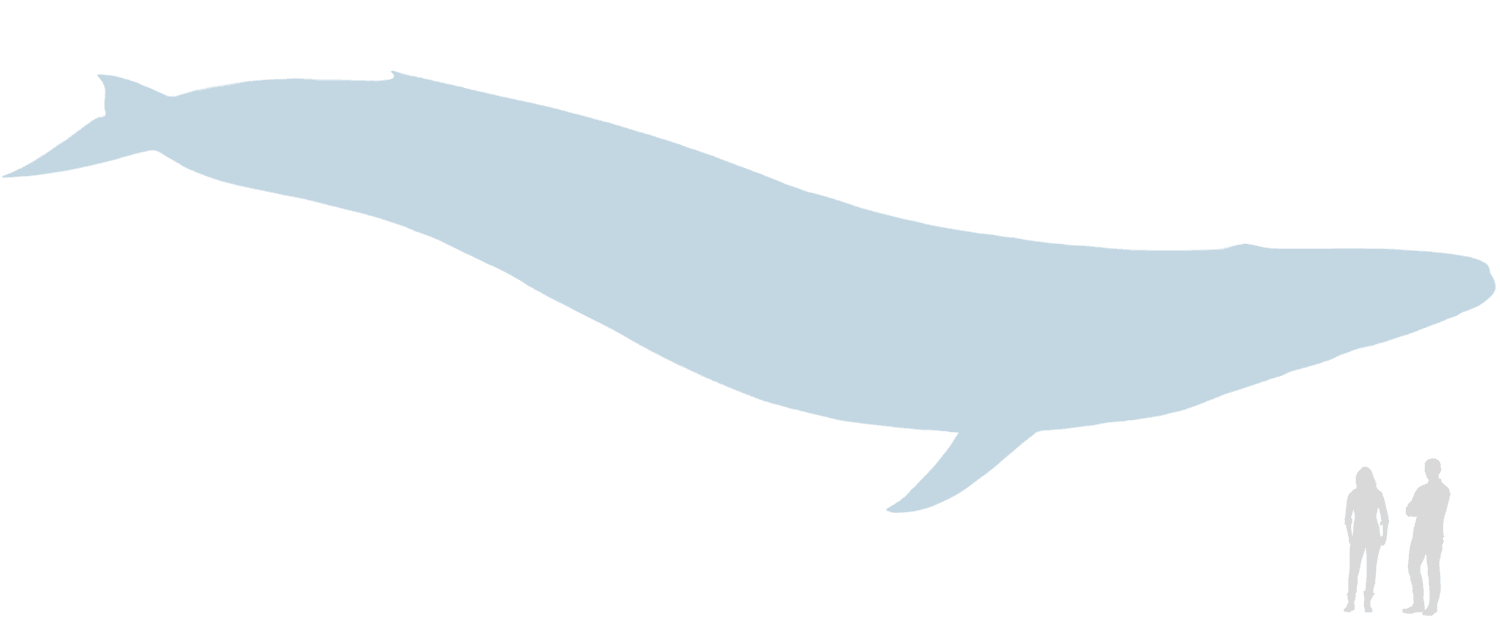
Blue Whale
Balaenoptera musculus
Scientific Classification
| Kingdom | Animalia |
|---|---|
| Phylum | Chordata |
| Class | Mammalia |
| Order | Cetartiodactyla |
| Suborder | Mysticeti |
| Family | Balaenopteridae |
| Genus | Balaenoptera |
| Species | musculus |

Blue whales are about 79 to 98 ft long (24 to 30 m) and can weigh a staggering 170 tons (154,200 kg)!
They have a lifespan of 80-90 years.
Blue whales eat mostly krill, a tiny shrimp-like creature.
With a global distribution, they live in every ocean except parts of the Arctic covered with ice throughout most of the year.
Threats to Blue Whales
Vessel strikes, fishing & harvesting of aquatic resources, anthropogenic (human-created) noise, etc.
Current Population Trend Increasing
 |
Conservation Status The IUCN Red List tracks the conservation status of organisms around the world. Visit the Red List to learn more about the conservation status of blue whales. |
OCS Research Insights
In Santa Monica Bay, California, our research team did not see blue whales near shore until 2012 (our studies started in 1996).
We have observed boats harassing blue whales while they were feeding just off Los Angeles (a jet ski literally drove over a whale!)
Report whale or dolphin harassment
Learn more about OCS research
We share data with other researchers to help track blue whale distribution, movements and trends off California
Blue Whale Facts
• Blue whales are the largest animals to have ever existed on Earth.
• They are the loudest animals on the Planet, producing low-frequency sounds that can be heard by other whales up to 1,000 miles (over 1,600 km) away!
• They can eat up to 6 tons (5,400 kg) of krill in one day.
• The major blood vessel of a blue whale’s heart is so big that a human baby could crawl through it!
SUPPORT CONSERVATION
Protect whales and dolphins now and for future generations
TAKE ACTION!
Here's how you can help
Learn Safe Observation
Learn how to safely observe whales, dolphins and other marine mammals - whether from a boat, surfboard or when kayaking or swimming.
Report Injuries or Harassment
Know who to contact if you encounter marine animals who are injured, in distress, or those being harassed by humans or boats.
Support Marine Research
OCS conducts one of the longest-running investigations on wild dolphins and whales existing worldwide. Learn more about research projects that help ensure the protection of these animals for generations to come.
Share Your Knowledge!
Ocean conservation starts with education. Share this page by copy/pasting its URL into your social media accounts to educate others about the magnificent marine mammals we share our planet with.
whale and dolphin species drawings © Massimo Demma / ICRAM / Muzzio
